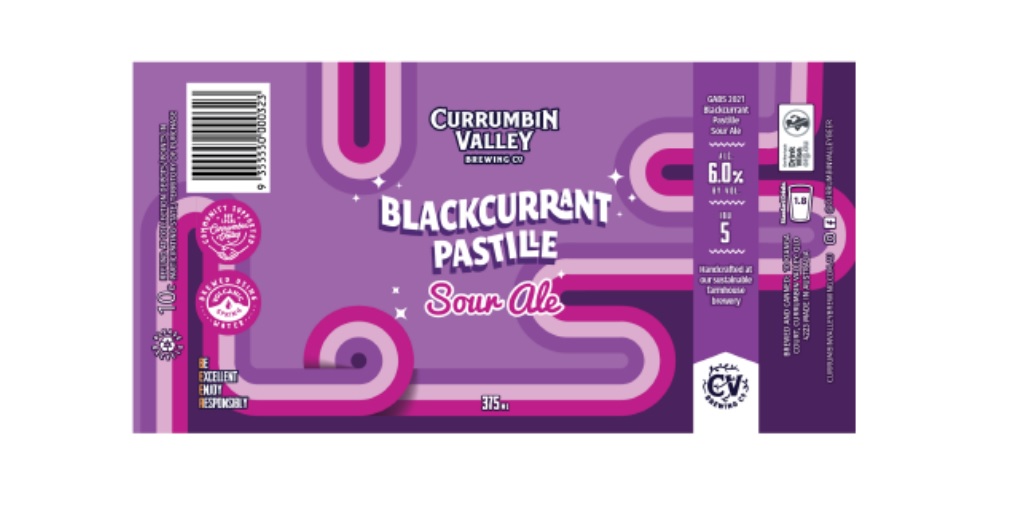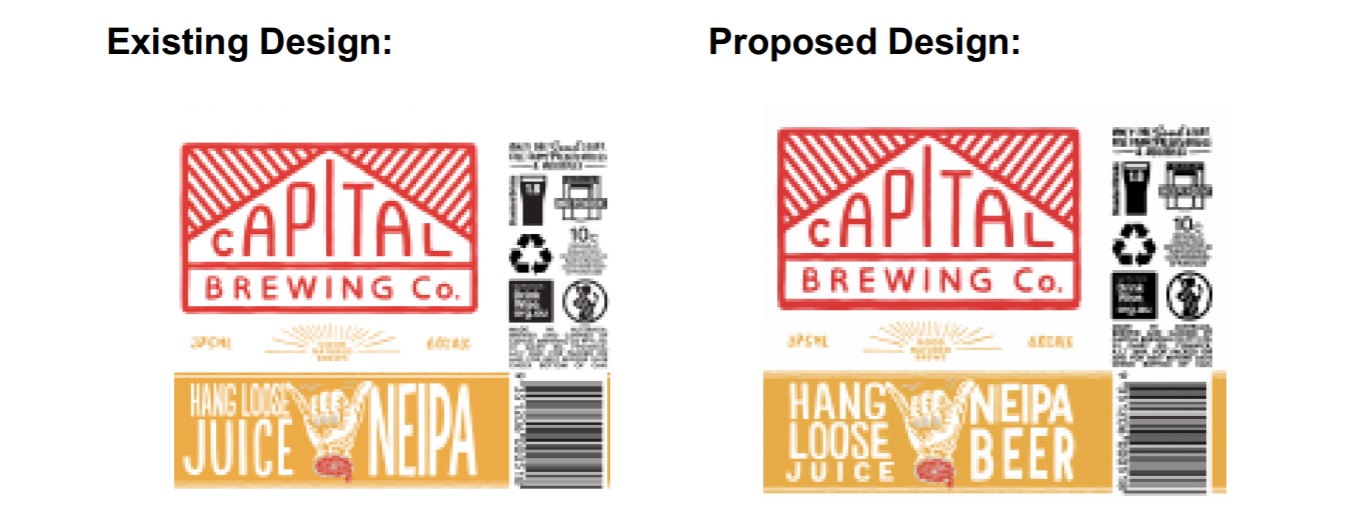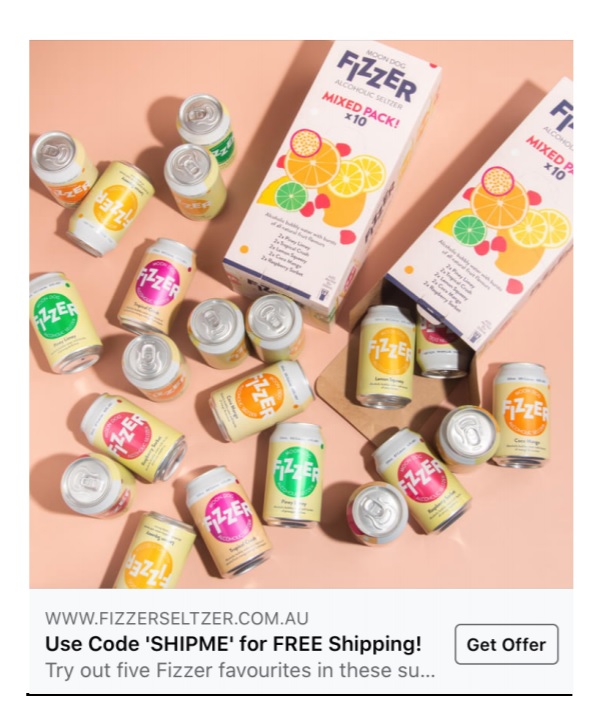
“Juice” IPA and Pastille Sour Ale face ABAC
Adjudications on a Juice IPA and a lolly-inspired Sour Ale have featured in this round of judgements by an ABAC panel.
The rulings by the alcohol advertising regulator, which covered both craft and mainstream beer as well as RTDs, have placed into focus the relationship between the media and alcohol marketing.
In two rulings which covered third party content regarding beer marketing, ABAC reiterated that its jurisdiction does not cover media outlets, but its rulings highlighted the complex relationship between marketing and the media, and the need for media outlets to be responsible in their coverage of alcohol products.
In addition to these judgements, an ABAC adjudicating panel highlighted Capital Brewing Co.’s cooperation as a sign of its corporate responsibility after a complaint about its Hang Loose Juice NEIPA.
Meanwhile Carlton & United’s VB Solar Exchange programme again faced the ire of a complainant, this time over advertising placement rules, and a complainant also argued that Moon Dog’s Fizzer Seltzer could be confused with a soft drink.
Currumbin Valley Brewing

Currumbin Valley Brewing has faced an ABAC complaint in relation to media coverage relating to its Blackcurrant Pastille Sour Ale.
The complainant took issue with descriptions of the beer on both the GABS Festival website and consumer beer website the Crafty Pint, which described the beer and its branding.
The complainant argued that the entry on the festival website “is enticing people to try the beer based on their love of lollies”. Similarly the Crafty Pint article was critiqued for reiterating the connection between the Sour Ale and Lifesavers Blackcurrant Pastilles. In the Q&A on the beer publication site, the brewers explain the inspiration for the beer, saying they used the lolly brands as inspiration and marketing tools for their beers.
“This creates an appeal to minors which is inappropriate for alcohol communications and branding,” the complainant argued.
Currumbin replied to the complaint saying that the Blackcurrant Pastille Sour Ale was a limited release with only 85 cases of 24 produced, with a number sold to GABS and some to the public as part of the festival.
The brewery highlighted the high cost of outsourcing label design, explaining that as a result, can design is often done in-house, and that no direct reference had been made to the Lifesavers brand on its packaging.
“The design is focussed on a retro vintage style that does not have strong or evident appeal to minors, in our opinion,” it said.
The brewery also said that online sources like the Crafty Pint and GABS are beyond its control as a marketer.
The ABAC panel made a provisional determination which found that the Sour Ale was in breach of its regulations and Currumbin subsequently requested a rehearing of the complaints.
The brewery said that it respects the “vital role” ABAC plays, but that the media article was not a ‘marketing communication’ and, amongst other things, that the panel had approached the communications collectively rather than individually, and asked that it be reassessed.
The most critical point raised by Currumbin, ABAC said, was that the panel ‘overreached’ which led to findings about the packaging of the beer, which was not included in the original complaints which were specifically about the media articles, but that the panel had ruled on regardless.
ABAC responded by saying that it had been clear that the branding of the Sour Ale packaging that was the key part of the original complaint, and that it had made a “direct allusion” to the Lifesavers Blackcurrant Pastille lolly brand as inspiration for the beer, which the Crafty Pint article reiterated.
The decision cited comments from Currumbin’s founders in the article saying that “we wanted to really capture that moment of being a kid and enjoying the lollies you’d get from the milk bar”, but said that the intention or inspiration of a marketer in designing marketing is not decisive.
Despite this, the ABAC panel said that its benchmark is what a reasonable person would understand the intent to be, and thus it upheld the complaint in relation to product packaging.
However it did dismiss the complaint in relation to the complaint about the Crafty Pint and GABS website, because it said it does not cover all references to alcohol products found in public media outlets.
Minus 196 Double Lemon
In addition to the third party articles mentioned in relation to Currumbin, ABAC ruled on a complaint about news articles featuring a Japanese RTD, Minus 196 Double Lemon.
The complaint against the articles on Minus 196 Double Lemon, which has been introduced to Australian markets by Beam Suntory, argued that they encourage excessive or rapid consumption of alcohol, and emphasised its alcohol content.
The company responded saying that the editorials in Delicious magazine, Pedestrian TV and News.com.au were published at the discretion of journalists and editors of these publications, and therefore should not be considered under ABAC.
Suntory also said that it was its public relations agency, Liquid Ideas, that released the consumer media release which “caused the articles to be published through an unpaid public relations campaign” with limited ability to change the articles, only when the information is factually incorrect.
ABAC acknowledged that the complainant viewed these articles “with some scepticism” but said that the code itself is concerned with only the marketing communications which are generated by or within reasonable control of the producer.
Capital Brewing Co.
Capital Brewing Co.’s Hang Loose Juice NEIPA, described as tasting like “a glass of freshly squeezed juice” on the brewery’s social media posts, has received an ABAC complaint.
In a detailed submission, a complainant argued that referencing “juice” may cause confusion for minors. They referenced a previous ABAC decision for Cream Soda Sour Ale earlier this year in which an ABAC panel said that confusion might occur if a company is reliant on terms understood by adult drinkers but not necessarily by minors.
The complainant took a holistic view, saying that using a can format does not preclude it being a soft drink, and that even Capital Brewing Co.’s name could not necessarily imply an alcoholic beverage, referencing Bundaberg Brewing Company and its reference to “brews”.
They also complained about a Facebook post referring to the beer, saying it does not provide enough information to show that the product is an alcoholic beverage.
The complaint follows revelations earlier this year that despite being critical of the ABAC code and its efficacy, members of the state chapters of the Cancer Council charity have been sending in complaints to the regulatory body.
Capital responded saying that while it did not receive pre-vetting approval for Hang Loose Juice specifically, it had submitted for its Trop Pop Sour Beer to be pre-vetted, and had discussed verbally with an ABAC representative its other products, including the NEIPA.
The ACT brewery said that it had taken steps to ensure that indicators such as ABV and style, but it also proposed a new design which makes the word beer more prominent.
The brewing company admitted that its Facebook post was not consistent with the code and it has subsequently changed the description so there is no reference to tasking like fresh juice.
In the response, Capital also said it held approximately six months of printed cans with the existing design and estimated this stock value to be around $34,214. It said that writing this off would have a significant impact on the business, and offered to replace the design and ensure this has been done so before January 2022.

An ABAC panel responded saying that it does not have a standard which says packaging should identify products as alcoholic, although there is direct government regulation contained in the Food Standards Code which mandates label information like alcohol content.
The panel also took a holistic view and mentioned a list of the potential factors which could indicate a strong or evident appeal to minors, which is a facet the code aims to prevent.
It found that taking this view of the packaging of Capital’s Hang Loose Juice, it did not breach the standard, however it supported the company’s intention to withdraw the current labelling.
“The willingness of the Company to act responsively to the legitimate concerns of the complainant displays a strong sense of corporate responsibility,” the panel said.
Moon Dog Fizzer
Moon Dog Craft Brewery’s Fizzer Seltzer was the subject of a complaint which suggested it could be mistaken for a soft drink, and appeal to minors, which are banned under the code.
The complainant argued that the product does not adequately reference its alcohol content, that product flavours are most associated with soft drinks, and that the name Fizzer draws association to a popular confectionery. They also suggested that seltzer has only recently been associated with alcohol, which could cause confusion for minors.

Moon Dog replied saying that pre-vetting approval was sought and obtained in relation to the Fizzer can design, after making revisions. It said that the ABV and label of “alcoholic seltzer” are prominent, and used the term alcoholic rather than “hard seltzer” to emphasise its alcohol content and avoid any confusion. It asked that the complaint with regards to its packaging and branding be dismissed.
It did however remove its Facebook post, which was another source of concern for the complainant.
An ABAC panel ruled that while the complainant raising legitimate issues and the Facebook post was in break of its rules, the Fizzer Seltzer packaging itself does establish its alcoholic content sufficiently, and on balance, a reasonable person would not understand the packaging to have a strong appeal to minors with any appeal incidental and not greater that it would be for an adult.
VB Solar Exchange ads
Not for the first time, Victoria Bitter’s advertisements for its Solar Exchange programme have faced a complaint to the ABAC adjudication panel.
This time, the complainant took a different approach to the article. They did not say specifically which advert they were referring to, but said that the Solar advertisements target and advertise beer to minors.
The ABAC panel interpreted it as a placement rules issue, as the adverts were reportedly seen on free-to-air channel 10 Preach between 2pm and 3pm in the afternoon.
The Commercial Television Industry Code of Practice mandates that alcohol advertising cannot be shown during programmes broadcast over free to air television prior to 8.30pm, except during 12 and 3pm on school days or during live or weekend sport.
The ABAC panel said it asked for clarification on dates from the complainant as this would affect its judging process, but did not receive a response.
In terms of wider appeal to minors, the panel said that the adverts overall had a mature look and feel with references to homeowners and energy usage, and would thus not appeal to minors. It dismissed the complaint.
Other ABAC decisions
Bigshot Brewed Alcoholic Drink was critiqued for showing a woman on the side of a boat, which the complainant says showed her swimming, an activity named by the ABAC as requiring a “high degree of alertness or physical coordination”. The company accepted the ABAC panel’s decision that it was in breach of its standards and removed the post.
40/20 Beer Company, a beer brand based in Manly which says on its website that “instead of waxing lyrical about the hops and fruity notes, we’d rather focus on the fun stuff”, was accused by a complainant of using people, including well-known surfers, in social media adverts and its website who were under 25.
The company argued that its website and Facebook pages were already age-gated, and now its Instagram is as well. The posts have now been removed, 40/20 said, and it is also familiar with the requirements of the code.
The ABAC panel said that the majority of the posts, save one of its social media posts and an image on the website, were in breach of its standards which mandate that those appearing prominently in alcohol adverts must be over 25 years of age.
A Lucky Bay Brewing radio jingle also faced a complaint that it “promotes alcohol as a crutch to get through your day and impress your friends” also making the point that it was on frequently on the radio during the day.
The ABAC code stipulates that marketing communications cannot show the consumption of, alcohol as the cause of personal, business, social, sporting or sexual success.
The complaint was dismissed as a reasonable person would not listen to the ad and dissect it on a line-by-line basis, but would receive the overall impression that Lucky Bay’s beers are positioned as a locally-produced craft beer, and that saying it is a good choice after work does not necessarily imply the product is necessary to aid relaxation.
The Instagram account for Gooné Wine was accused of featuring people under the age of 25 and showing and encouraging drinking in an irresponsible manner.
An ABAC panel agreed with the complainant, and encouraged the company to reflect on the style of marketing it has employed.
A complaint against Blackhearts & Sparrows for a competition it ran on social media suggested that it will “workaround any measures the advertiser of Instagram have taken to avoid showing sponsored content to minors”.
The complaint said that by encouraging users to share content it will effectively circumvent age gating.
Blackhearts & Sparrows responded saying that it has analytics to show its audience are in the appropriate age bracket, and its range of medium to high price boutique wines lends itself to an older audience. The competition had already ended by the time the complaint was received.
“We have also now fully utilised the Age Restriction Controls within Instagram to strictly ensure that no minors are able to view our communications in any capacity,” it said.
ABAC upheld the complaint because the company was not fully compliant with its placement rules, as it had not fully utilised the age controls available.



